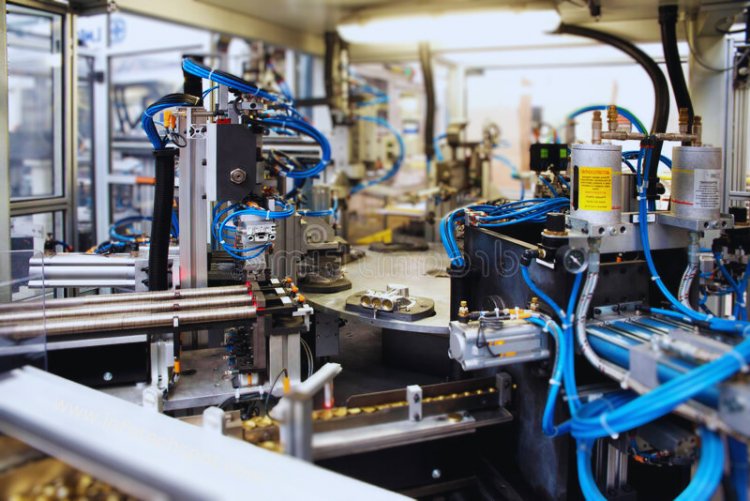Industrial Technology Benefits
This article explores the key aspects of industrial technology, its applications, benefits, and its impact on the modern workplace.

Introduction:
In today's rapidly advancing world, It plays a crucial role in transforming the way we work and revolutionizing various industries. From automation and robotics to advanced data analytics and artificial intelligence, IT has the potential to enhance efficiency, productivity, and safety across diverse sectors. This article explores the key aspects of industrial technology, its applications, benefits, and its impact on the modern workplace.
1. Understanding Industrial Technology
It encompasses a broad range of tools, systems, and processes used to improve industrial operations. It involves the integration of cutting-edge technologies into manufacturing, logistics, supply chain management, and other industrial processes. The goal is to optimize operations, minimize costs, and maximize output.
2. The Role of Automation and Robotics
Automation and robotics are at the forefront of it. These technologies enable the use of intelligent machines that can perform repetitive tasks with precision and speed. Industrial robots can handle complex manufacturing processes, leading to increased productivity, improved product quality, and reduced human error. Automation also frees up human workers to focus on more strategic and creative tasks.
3. Advanced Data Analytics in Industrial Technology
Data analytics plays a crucial role in it. By harnessing the power of big data, businesses can gain valuable insights into their operations, supply chains, and customer behavior. Advanced analytics tools help in identifying patterns, predicting maintenance needs, optimizing production schedules, and improving overall operational efficiency.
4. The Rise of Artificial Intelligence
Artificial intelligence (AI) is transforming the industrial landscape. AI-powered systems can analyze vast amounts of data, make intelligent decisions, and even learn from experience. Machine learning algorithms enable predictive maintenance, anomaly detection, and real-time optimization. AI technologies like computer vision also enhance quality control and enable robots to perform complex tasks with precision.
5. Internet of Things (IoT) and connectivity
The Internet of Things (IoT) has revolutionized industrial technology by enabling connectivity between devices, machinery, and systems. IoT devices collect and exchange data, enabling real-time monitoring, remote control, and predictive maintenance. Connected factories and smart manufacturing systems enhance efficiency, reduce downtime, and enable seamless integration across the entire production ecosystem.
6. Industrial Technology in Energy and Sustainability
It plays a significant role in promoting energy efficiency and sustainability. By optimizing processes, reducing waste, and integrating renewable energy sources, businesses can minimize their carbon footprint. Smart grids, energy management systems, and IoT-enabled sensors help monitor energy consumption, identify inefficiencies, and implement sustainable practices.
7. Impact on the Workforce
While technology brings numerous benefits, it also impacts the workforce. Automation and robotics can replace certain manual tasks, leading to concerns about job displacement. However, it is essential to note that it also creates new job opportunities, requiring workers with advanced technical skills to operate, maintain, and develop these technologies.
8. Industry-Specific Applications
Industrial technology finds applications across various industries. In manufacturing, it streamlines production, optimizes supply chains, and enhances quality control. In logistics and transportation, it improves inventory management, route optimization, and tracking. Other sectors, such as healthcare, agriculture, and construction, also benefit from industrial technology's advancements.
9. Benefits and Future Outlook
The adoption of it offers numerous benefits. Increased productivity, improved product quality, reduced costs, enhanced safety, and optimized resource utilization are just a few advantages. As technology continues to advance, its future of it holds even greater promise, with further integration of AI, automation, IoT, and data analytics.
Conclusion:
Industrial technology is revolutionizing the modern workplace, paving the way for increased efficiency, improved safety, and enhanced competitiveness. From automation and robotics to advanced data analytics and artificial intelligence, businesses across industries are harnessing the power of it to optimize their operations and achieve sustainable growth. Embracing these advancements is crucial for organizations aiming to stay ahead in today's fast-paced and evolving business landscape. By leveraging industrial technology, businesses can unlock new opportunities, drive innovation, and shape the industries of tomorrow.











